Blog
The Relationship Between Hair Care and Water Quality

The feel and health of your hair have a lot to do with the water you use when showering. Hard and soft water play an integral role in the health of your hair. Some people might blame their shampoo or conditioner for the way their hair feels. However, that blame is often misdirected. Many times, it is important to take a closer look at the quality of water being used.
A closer look at your hair will show that each follicle has a lot of small scales on it. The use of hard water forces all those small scales to stand up. That is why hair can feel rough and seem a bit tangled even after a shower. Meanwhile, soft water is more soothing to those small scales. Washing your hair with soft water produces a softer and silkier feel.
The use of soap and shampoo is also much less effective with the addition of hard water. All the extra minerals in hard water cause a reaction when combined with the ingredients used in soap and shampoos. That combination can cause salt to form. However, the use of soft water leaves far fewer deposits because that combination is completely different. Soft water with the addition of soaps and shampoos creates a rich lather that thoroughly rinses your hair during the washing process.

If your home is equipped with hard water, there are tactics that can be used in place of buying a water softening system. However, those tactics require a good deal of work. It would require using all natural shampoos followed by a certain type of conditioner. It may even force you to experiment with different kinds of conditioners until you get the right one. Some fixes may even involve using something like distilled water for the purpose of rinsing your hair. Other fixes include using some type of acid rinse. The bottom line is that hard water has such a negative effect on your hair that it takes a lot of corrective measures to remedy this issue.
Certain areas of the country are more prone to having hard water than others. For example, the Midwest has extremely high concentrations of hard water as does most of Florida and northwest Texas. Most of North Carolina features hard water that is considered to be slightly hard water, meaning it is a bit stronger than typical hard water.
When you are ready for a water systems in Charlotte NC, contact the team of professionals at Carolina Water Products.
Toilet Bowl Ring and other Hard Water Stains
Toilet Bowl rings and hard water stains can appear to be somewhat similar and sometimes look to be a very close match. However, it is important to note that they are not one in the same. Both can be unsightly and unsanitary. Understanding the root causes of each can help to eliminate both issues altogether.
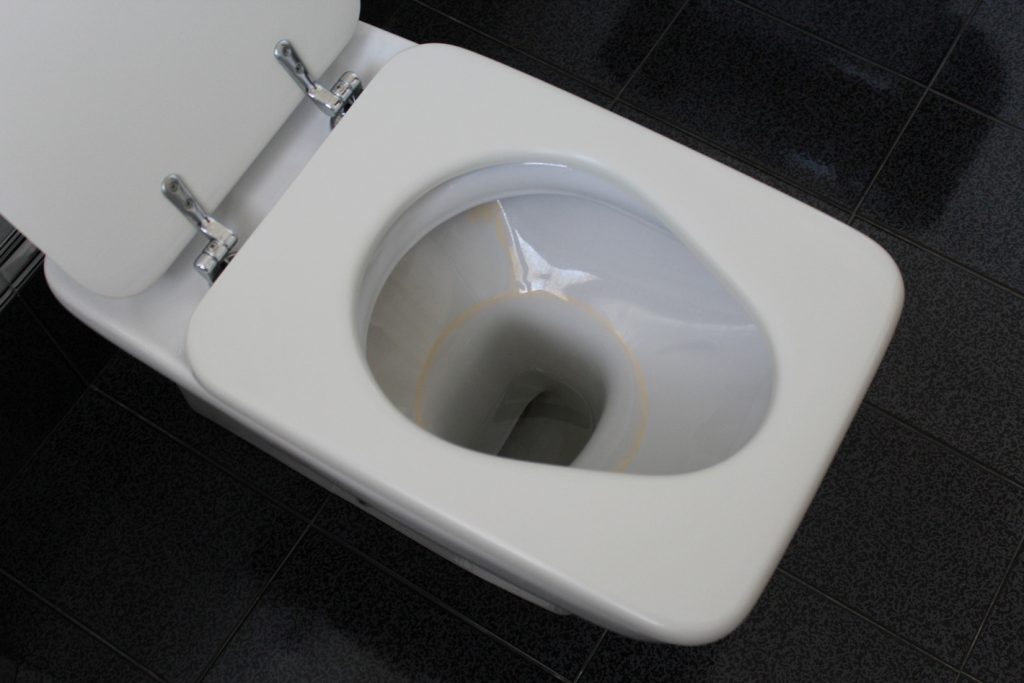
A toilet bowl ring can be caused by hard water, although not all rings are created the same. Bacteria, mildew and mold can grow and all types of water. Toilets provide the optimal conditions for the growth of bacteria, mold and mildew. When any of those issues produce a toilet bowl ring without a distinct coloration, it is attributed to the growing microorganisms and not hard water.
Hard water stains are a bit different. Hard water often produces a ring that is colored. This is because of the minerals within hard water, which settle in the toilet bowl. In many instances, those minerals produce an orange collar, which is similar to rust. This is due to the presence of too much iron in the water. Other minerals may give off slightly different colorations and are often a result of too much magnesium or calcium in the water. Colors are typically associated with the presence of a different mineral.
When stains begin to appear more rapidly, it is a sign that the level of hard water is high. That means there is a lot of minerals in the water flowing through your home. Homeowners who have well water often find high concentrations of hard water and that is evidenced by frequent stains in their toilet bowls. Hard water stains also show up in all the home’s toilet bowls while bacteria-induced toilet bowl rings are individualized.
There are numerous ways to clean a simple toilet bowl ring and a simple online search will show a variety of DIY fixes. Everything from toothpaste and baking soda will provide a temporary solution. However, it is important to take steps that will eliminate this problem entirely. Using cleaning agents on a regular basis will prevent any toilet bowl rings from growing and fixing hard water stains permanently will require the installation of a water softening system. This latter solution will also make for a healthier environment for everyone within the home.
For the installation of a water softer filtration system in Charlotte, NC, contact the experienced professionals at Carolina Water Products.
How Your Tap Water May Be Drying Out Your Skin
There are lots of theories as to why skin conditions develop among people of all ages. However, many people may fail to take into account that water can actually cause and trigger certain skin conditions. But it is not just any kind of water. Tap water that has not been softened can create a myriad of problems.
Tap water that is untreated is classified as hard water as the two descriptions are often used interchangeably. This means that water contains an excess amount of minerals and chlorine. These minerals can be detrimental to the skin. There is also a higher chance for cases of eczema in households where people use hard water. Eczema is a skin condition that can be irritating and sometimes painful.
There is an intricate process of how tap water affects human skin. Here is more on how it works. Chlorine is absorbed by the skin and then acts as a type of poison to the body. It affects people differently and can cause a number of problems. Water with high traces of chlorine can make people appear to be older because of the effect it has on the skin. Those who continually use hard water, or tap water, may have skin that resembles the effects of being out in the sun for long stretches of time. Fluoride also has this effect and is commonly found in tap water.
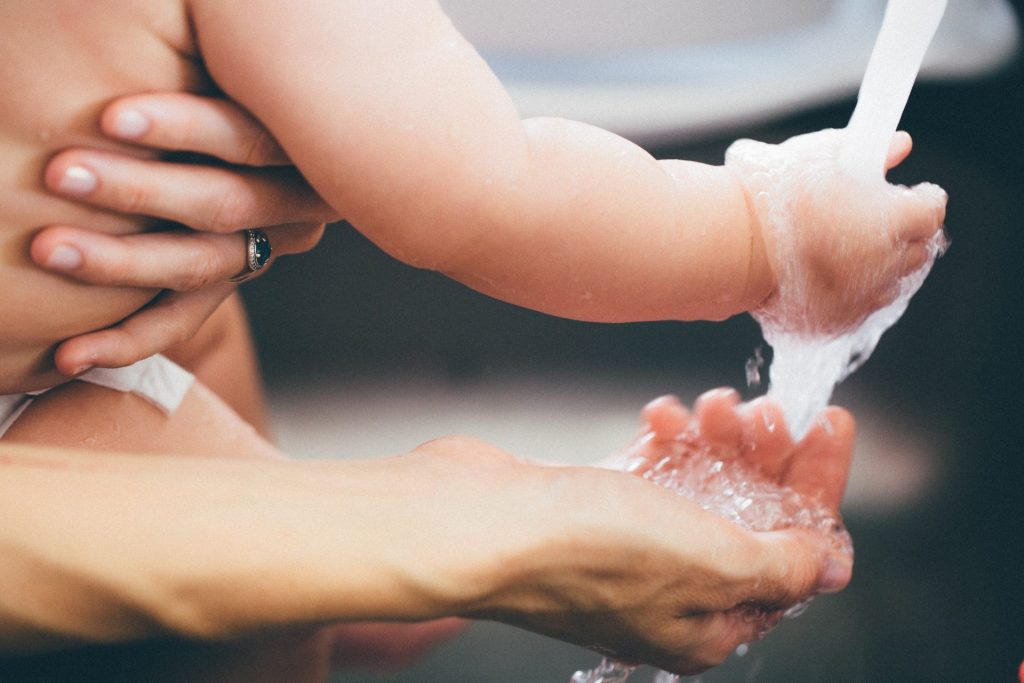
One of the functions of our skin is to protect us from the environment. Chlorine inhibits that protection by drying out the skin. That leads to the appearance of dryness and often results in an excess amount of itching. While that may not give off the most appealing look, it also causes negates the primary goal of the skin, which is to protect us. Tap water essentially attacks that protective layer of our body.
Skin diseases are not uncommon as they will affect about 1/3 of the population in the United States at some point in time. There is also a high population of people with sensitive skin, which compounds the risk of using tap water. Tap water can also attack and may lead to problems with dandruff. Meanwhile, most people may be unaware that it is directly caused by the use of tap water.
Itchy, flaky or blotchy skin does not have to be a concern any longer. Simply call Carolina Water Products and check out why we offer the best water solutions in Charlotte, NC.
Groundwater Shows Traces of Pollution in North Carolina
Throughout the entire United States, there is the constant threat of pollution to groundwater. This means there is a strong chance that some of the water you drink could be polluted. It is also the same water used to bathe. This can lead to a number of negative health effects.
The state of North Carolina is not immune to this threat. Recently, an environmental report confirmed those threats as very real and legitimate. Those reported threats have stemmed from the presence of coal ash contamination.
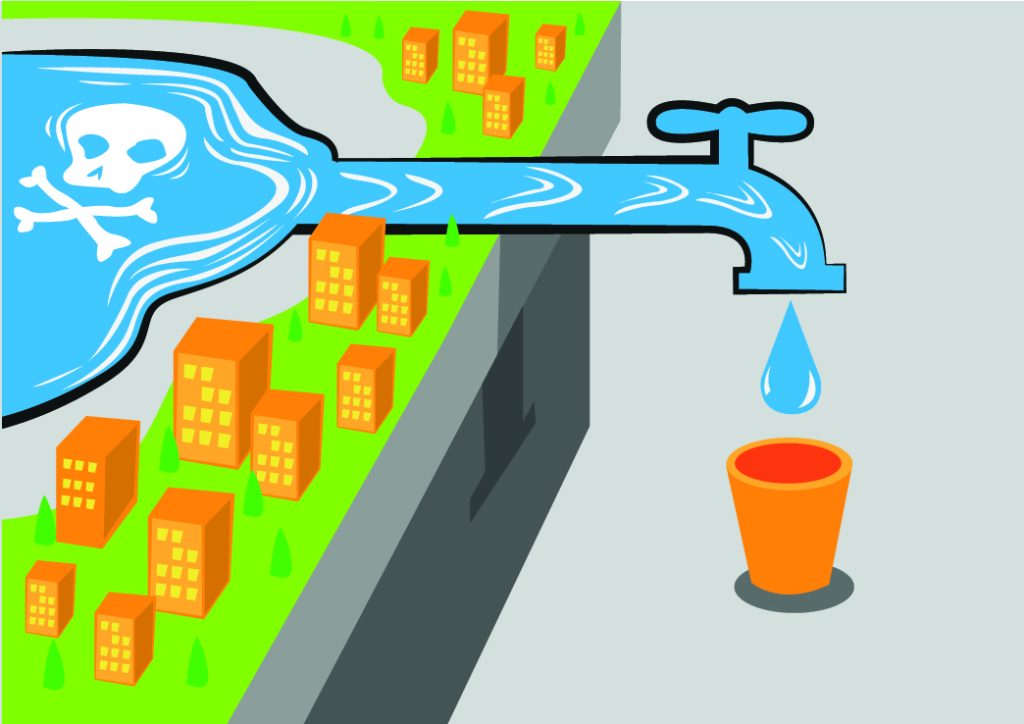
This particularly hit home in the city of Belmont, N.C., as it had the second highest contamination of coal ash in the entire county. Belmont was listed among sites in 39 other states in the report. However, one particular area was worse off.
Duke Energy’s Allen Steam Station was the location where the coal ash contamination was at its worst. That comes as no real surprise to residents as there has been a growing concern about contamination for several years. The results were identified after a pair of environmental groups provided reports of their findings to the Environmental Protection Agency.
The report states that the Belmont area features coal ash dumps that are contaminating the groundwater with cobalt. Tests confirmed that this contamination was 500 times beyond the acceptable level. Thyroid damage has been linked to excessive exposure to cobalt. Meanwhile, other pollutants were also identified. In fact, the findings showed that pretty much all the water beneath coal plants showed signs of contamination.
This is a major concern because coal plants typically have higher levels of arsenic, which can cause a variety of cancers. Moreover, lithium has been identified in 60 percent of coal plants. The presence of lithium can damage the human neurological system, in addition to causing other health risks.
This latest report could not make an exact determination on drinking water due to the fact that there were no tests conducted on private drinking water sources. Once again, this comes as no surprise to many people who reside near the Allen Steam Station. Consequently, residents have been buying bottled water in bulk for years.
Groundwater could be threatened no matter where you live and that is why it’s important to purify your water with one of the filtration systems offered through Carolina Water Products. For the best water systems in Charlotte, NC and the surrounding areas, contact Carolina Water Products today.
The Risk of a Cheap Water Softener
Buying a cheap water softener may appear to be a smart investment. However, it is important to consider the repercussions of such an investment. Saving a few bucks may wind up being very costly in the long run. Here is a look of some of the risks that come with the purchase of a cheap water softener.
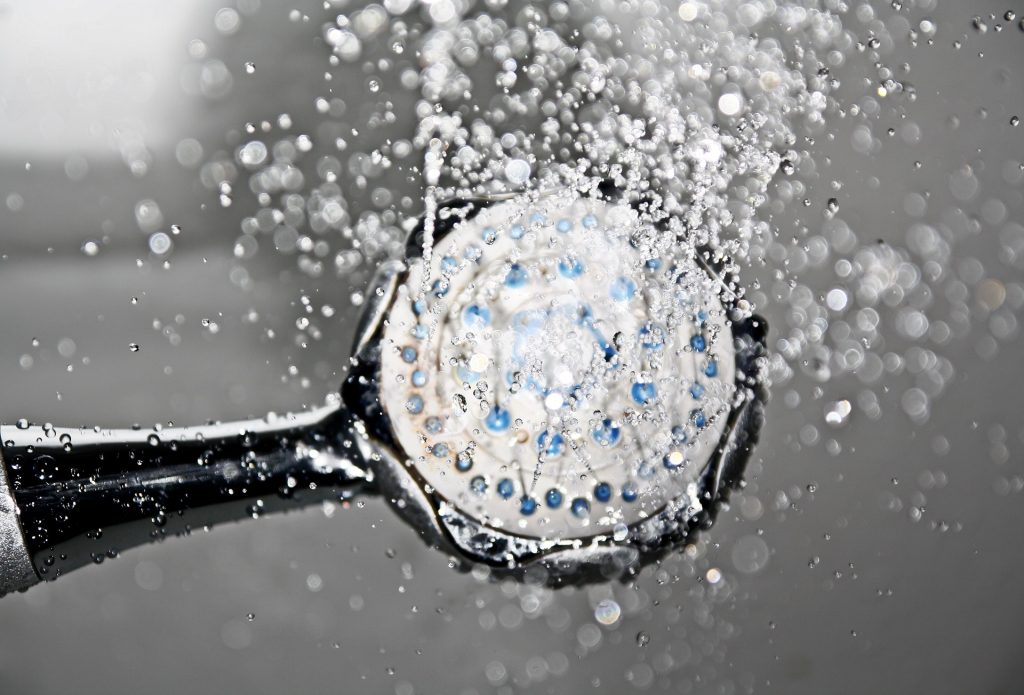
Too much salt
One of the functions of a water softener is to limit the amount of salt in your water. A water softener that is working properly should add just 8 mg of salt per every individual liter of water that is treated. This is very important for those who are on low sodium diets while infants are also at risk to water with high sodium concentrations. Excess sodium can have numerous adverse effects to the health of people of all ages.
Building bridges
Cheap water softeners can build something called salt bridges. The bridge is actually a buildup of sodium, which begins to form hardened salt deposits in the bottom of the tank. These salt bridges can cause problems which can throw off the entire regeneration cycle. The salt deposits cause blockages and keep the system from functioning properly.
Lack of power
Water softeners are powered by motors. A cheaper water softener may not look different to the ordinary consumer, but internally, they can be quite different. A lot of that relates to the motor and when that fails prematurely, repair is often more expensive than buying a brand-new water softener as a replacement. The risk of buying a water softener with a cheap motor is considered a financial risk because the longevity of the product is compromised.
Plumbing Protection
With a cheap water softener that doesn’t function correctly at all times, your home plumbing is at risk. Because hard water is full of minerals, it can leave build-ups within your pipes. The result is a reduction in water flow and the blockage of pressure, which could lead to eventual leaks throughout the home.
Biofilm
The buildup of minerals within a pipe are not always directly harmful but they can produce a biofilm, which has a scaly presence. A biofilm can be a haven for bugs which can spread something like Legionnaires disease, which thrives on bacteria. Cheap water softeners have the potential to create an abundance of this biofilm. Problems may then start to arise from a seemingly unknown source.
When it comes to finding the best water softeners in Charlotte, NC, trust the professionals at Carolina Water Products.
Chlorine in tap water – how much is too much?
Too much chlorine in drinking water is understood to be a common problem. However, it is important to understand why this is such a problem. Chlorine is actually a gas found in the environment and it is poisonous. When chlorine is in its purest form, it takes on the appearance of a green gas. Inhaling chlorine in that form can be extremely harmful to humans.
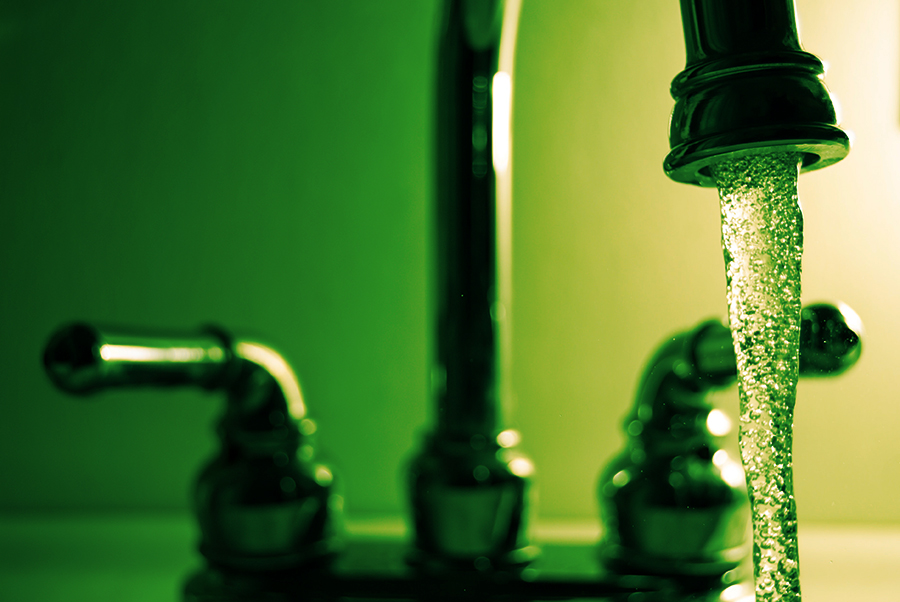
Chlorine has historically been used in small doses in water treatment plants to rid water of contaminants and make it safe for drinking. The harm in using chlorine comes when levels exceed a certain amount. When water is tested regularly, it is done in order to find traces of chlorine that are above the accepted amount as established by the EPA (Environmental Protection Agency).
Many people rely on tap water for most daily household activities, which includes drinking, cooking, washing clothes, and showering. It’s not common for most families to conduct daily tests on the amount of chlorine in their water. However, the acceptable amount of chlorine in drinking water should not exceed 4 parts per million. When testing water for chlorine, any reading above that amount should be addressed immediately. A failure to do so could cause a variety of problems.
When there is too much chlorine in your drinking water, signs and show up rather quickly. Symptoms are very similar to those that are experienced when someone contracts the flu. Nausea, headaches, cramping and even vomiting can be a result taking in too much chlorine. Also, Studies have indicated that women who have been diagnosed with breast cancer showed higher levels of chlorination settled within their fat tissue. This connection can result and frightening consequences.
So what is the answer?
It is impractical to test water every day. But even in the midst of a busy lifestyle, many people may neglect to test their drinking water on an annual basis. It is just something most people take for granted. Now, one sip of water with a chlorine level just above 4 parts per million is not going to kill you. However, its effects can be felt on a long-term basis. And the higher the level, the more risk you run. That is why any chlorine reading above 4 parts per million should not be overlooked. There are solutions and the health of you and your family is too important to neglect.
For all your water solutions in Charlotte, NC, check out everything that Carolina Water Products has to offer.
What Kind of Chemicals are in Your Cleaning Products?
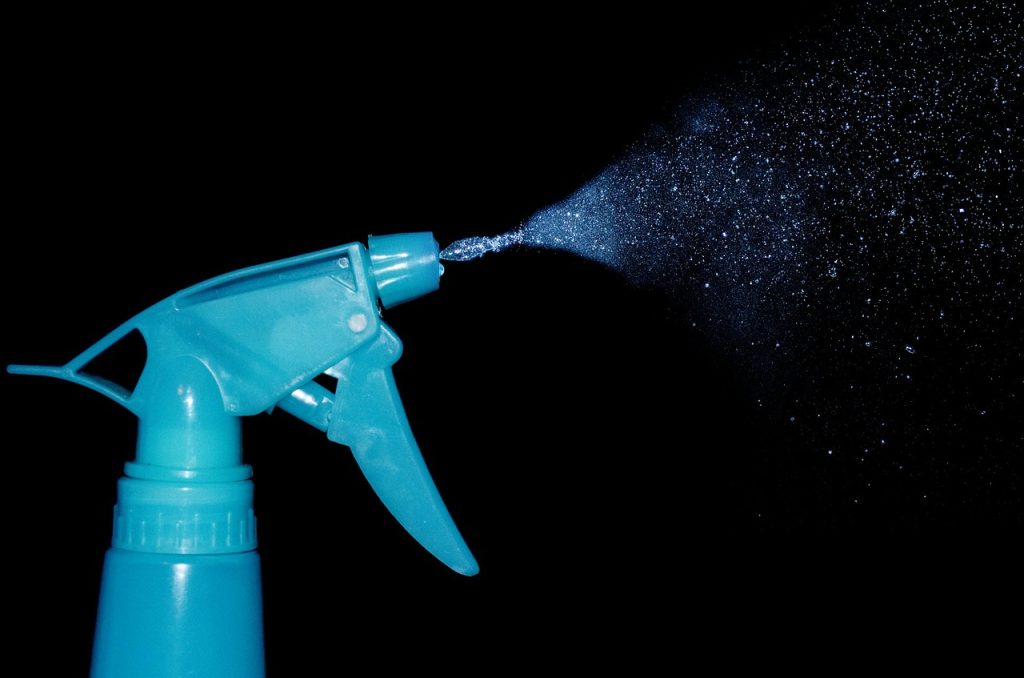 Household cleaning products may get the job done when it comes to getting rid of grime, grease or soap scum. But that does not mean they do not have chemicals that can be harmful to people. Here’s a look at some household cleaning products that may be more hazardous than you might think especially when they have compromised water and air quality.
Household cleaning products may get the job done when it comes to getting rid of grime, grease or soap scum. But that does not mean they do not have chemicals that can be harmful to people. Here’s a look at some household cleaning products that may be more hazardous than you might think especially when they have compromised water and air quality.
Air Fresheners
Air fresheners are used in many households to provide a pleasant aroma. However, these manufacturers have proprietary rights that allow them to withhold all the ingredients used in their aerosol products. Many air fresheners have something called phthalates, which can reduce sperm counts in men. Studies are limited as there are some negative associations that are still trying to be proved in phthalate-based air fresheners.
Carpet Cleaners/Spot Removers
One of the active ingredients in carpet cleaners and spot removers is perchloroethylene, commonly called PERC. The fumes from these products can cause dizzy spells, coordination loss, headaches and other additional symptoms. The EPA (Environmental Protection Agency) is lobbying for the removal of products that contain PERC and has labeled them is a potential type of carcinogen.
Fabric Softener and Dryer Sheets
These products serve the purpose of making our clothes feel and smell fresh, but they use something called Quaternary Ammonium Compounds, which can cause certain skin conditions and dermatitis. Some studies have indicated that the cause of certain respiratory infections can be attributed to the continued exposure to Quaternary Ammonium Compounds.
Bathroom Cleaners
Many products that are used to clean bathrooms have high concentrations of chlorine. This applies to sprays that remove mildew, cleaning products for toilet bowls and powder used to clean bathtubs and tile. The fumes have a negative effect on the respiratory system while making actual contact with these products can irritate the skin. There are natural home products that can be used as an alternative, such as vinegar and baking soda.
Dish Detergents
Some of these products contain an ingredient called triclosan, which is used to attack bacteria. However, studies have shown that certain bacteria can develop a resistance to products with triclosan. That results in the growth of new bacteria. Therefore, it is a good idea to read the labels when shopping for dish detergent and be aware of products with triclosan.
If you are looking for ways to make the air and water in your home much healthier, contact Carolina Water Products as we have a variety of solutions available in Charlotte, NC and the surrounding areas.
Tap Water Around the World is not so Safe Anymore
Taking a drink of water is not as simple as it used to be. Just when you thought all the water in the world could sustain human life for many generations to come, science stepped in and showed us differently. A recent study showed that almost all of the world’s tap water supply contains microplastic fibers.
The study was conducted by University of Minnesota researchers who examined microplastic water contamination on a global level. There were water samples collected in countries all over the world and when examined, researchers found that 83% of those samples contained microplastics. The study also showed that 94% of the samples collected from tap water in the United States contain traces of microplastics.
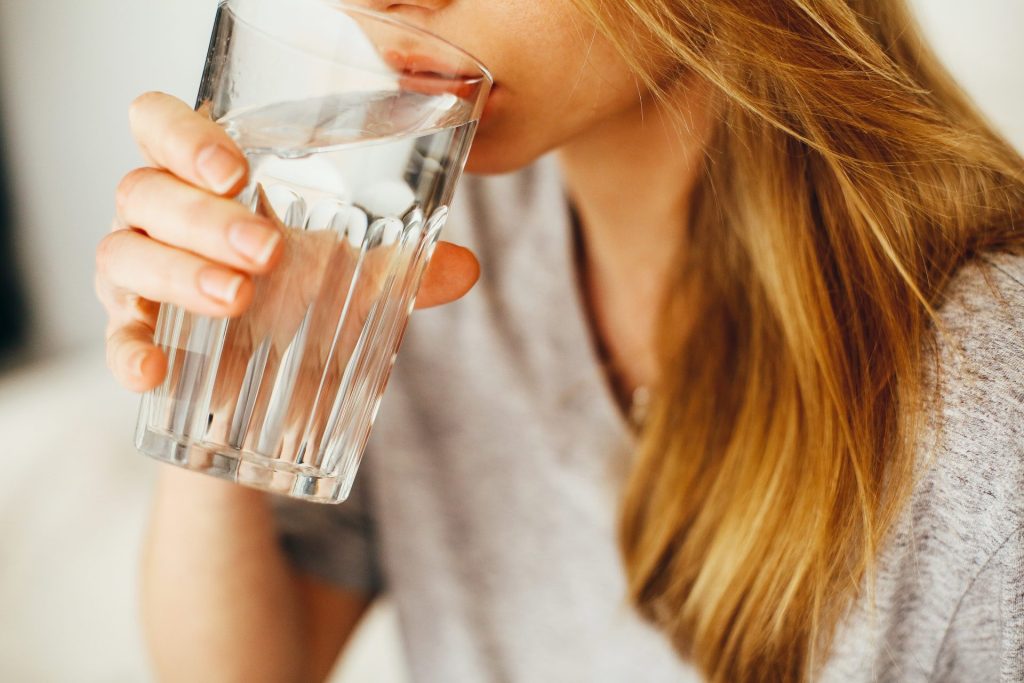
This would appear to be a simple case of the overproduction of plastic goods and a failure to dispose of them properly. Each year, there is an estimated production of 300 million tons of plastic. There are also other ways that microplastics find their way into water systems. Tire dust and the fibers on synthetic clothing were reported to be sources of contaminants.
Local municipalities treat their water supply for contaminants, although microplastics have flown under their radars. That means the tap water flowing through most of America is far from pure.
This study reveals a frightening reality. Simply turning on the faucet rarely comes without any sense of purity. Sea animals have already felt the negative impact of plastics polluting waters around the world. Studies are more limited in human capacity, although pollution of sea life has not made for a favorable outlook. Microplastics in tap water cannot be perceived as healthy by any means.
It is statistics like these that have caused more people to lean towards the installation of water filtration systems. Relying on tap water for even mundane household duties just doesn’t provide a sense of comfort any more. Even homeowners who use well water systems, can rest their minds at ease by installing water filtration systems. Our health is too important to leave to chance and that is exactly what we do every time we take a drink of tap water.
Tap water is used for showering, cooking and cleaning. Those important daily duties can be done worry free with the installation of a water filtration system from Carolina Water Products. It is our goal to provide a healthy water alternative to Charlotte, NC and the neighboring communities.


